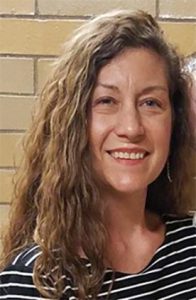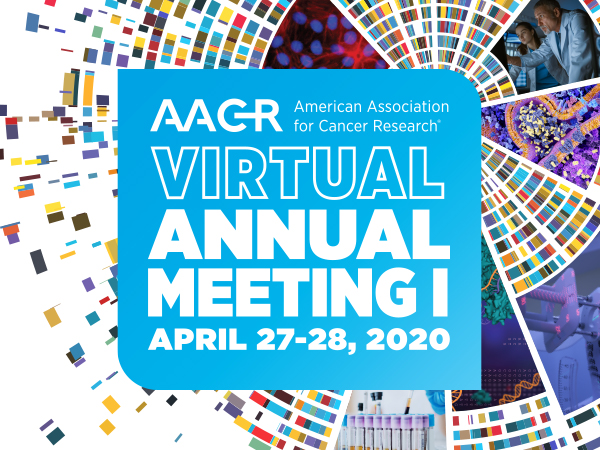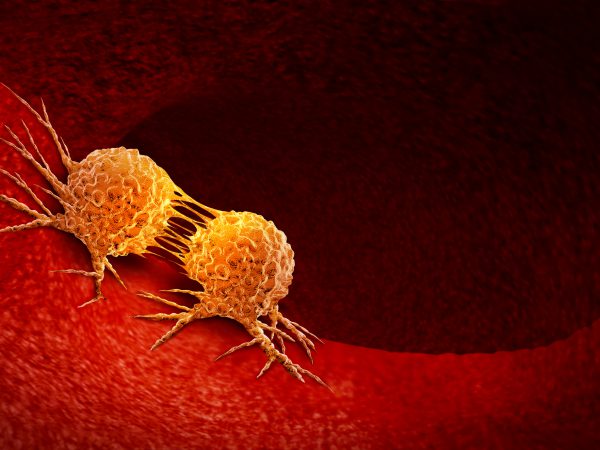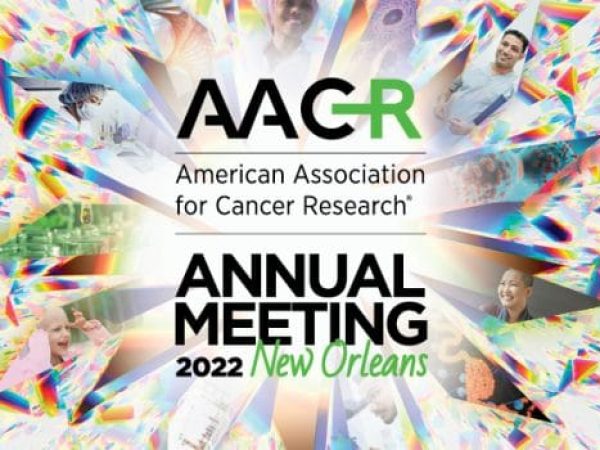FDA Workshop to Address Gynecologic Malignancies
 “We are in a promising time for cancer research and treatment; however, ovarian cancer remains difficult to treat, since it is often not detected until it has reached an advanced stage. My sister is one of the lucky ones. She was cured of late-stage ovarian cancer 20 years ago after surgery by a spectacular gynecologic oncologist/surgeon and her participation in a lifesaving, phase 1 clinical trial. Because of progress in cancer research, she has been able to enjoy the eight grandchildren whom she would never have even met, had her disease taken a downward turn. I am proud of efforts like this one, the FDA-AACR-SGO Drug Development for Gynecological Malignancies Workshop, that will help ensure more patients like my sister are able to receive lifesaving therapies and enjoy fuller lives.”
“We are in a promising time for cancer research and treatment; however, ovarian cancer remains difficult to treat, since it is often not detected until it has reached an advanced stage. My sister is one of the lucky ones. She was cured of late-stage ovarian cancer 20 years ago after surgery by a spectacular gynecologic oncologist/surgeon and her participation in a lifesaving, phase 1 clinical trial. Because of progress in cancer research, she has been able to enjoy the eight grandchildren whom she would never have even met, had her disease taken a downward turn. I am proud of efforts like this one, the FDA-AACR-SGO Drug Development for Gynecological Malignancies Workshop, that will help ensure more patients like my sister are able to receive lifesaving therapies and enjoy fuller lives.”
-An introduction by AACR CEO Margaret Foti, PhD, MD (hc)
Guest post by Gwynn Ison, MD, Medical Officer, U.S. Food and Drug Administration
Like medical oncology as a whole, the field of gynecologic oncology has undergone a remarkable transformation in recent years with the approval of bevacizumab and three PARP inhibitors for patients with cervical and ovarian cancers, respectively.
However, gynecologic malignancies continue to be a major cause of morbidity and mortality in the United States, resulting in an unmet medical need. In particular, ovarian cancer is usually diagnosed at an advanced stage, with no more than 20 percent of women being cured following initial treatment, which includes surgery and conventional platinum-based chemotherapy. It is the fifth leading cause of death in women in the U.S.
Endometrial and cervical cancers are gynecologic cancers that are treatable when diagnosed at an early stage, but for women with advanced or recurrent disease, the efficacy of available therapies is poor, and patients ultimately die from their disease within a matter of months. Rare gynecologic tumors such as low-grade serous carcinomas of the ovary continue to represent an area lacking in therapeutic options as well.
Given the recent advances in oncology, including the promise of immunotherapy and biomarker-driven approaches in multiple tumor types, it stands to reason that these successes in other tumors could be realized in the treatment of rare and advanced gynecologic malignancies. The potential for novel combinations and trial designs in the treatment of gynecologic cancers exists, but the approach needs to be well thought out.
To continue to improve clinical outcomes for patients with gynecologic malignancies, the U.S. Food and Drug and Drug Administration (FDA), the American Association for Cancer Research (AACR), and the Society of Gynecologic Oncology (SGO) have come together to co-sponsor a workshop to address furthering drug development in this area. Bringing together key stakeholders in the field of gynecologic oncology including industry, regulatory agencies, patient advocates, and academic oncologists, we seek to build on the discussions and progress initiated at the 2015 FDA-AACR-SGO-ASCO workshop focused on ovarian cancer endpoints.
The goal of this year’s workshop is to broaden our scope and engage in robust discussions on the most practical aspects of drug development including developing strong rationale for combination therapies and how to appropriately focus when dealing with rare malignancies that have low patient populations. The FDA-AACR-SGO Workshop on Drug Development in Gynecologic Malignancies will take place on June 14, 2018, at the FDA’s White Oak campus in Silver Spring, Maryland.




